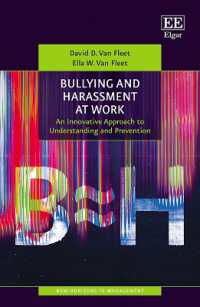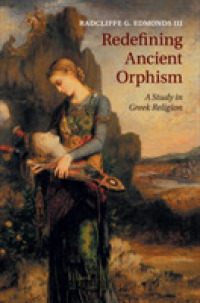Full Description
Notes from the Underground is recounted from the perspective of an unnamed narrator who describes himself as sick, spiteful, and unattractive. His thoughts and his moods veer unpredictably as he reflects on the folly of idealism and the reality of human squalor and degradation.
The psychological power of the book is deeply rooted in the conflicts and contradictions that afflict the narrator—many of which seem to have afflicted Dostoevsky himself. Once attracted to idealistic and utopian notions, he subsequently found himself repelled by them. A passionate advocate of freedom, he had little confidence that humans could use freedom for good. The narrator of Notes from the Underground is not a unified self, but a self-contradictory character, like his author. His bewildering complexity and relentless self-analysis make him one of the most memorable and thought-provoking protagonists of modern literature.
This new translation of Notes from the Underground renders Dostoevsky's famous work in readable and idiomatic contemporary English. As well as the full text of the work itself and an informative introduction, this edition provides background materials that offer personal and intellectual context for the work. These materials (also newly translated) include writings from some of the thinkers against whom Dostoevsky positioned himself; excerpts from Dostoevsky's personal letters and his earlier published works; and a substantial selection of relevant illustrations and photographs.
Contents
Introduction
Notes from the Underground
In Context
Literary Contexts
from Charles Fourier, "The Scale of Personalities and Temperaments," The New Industrial and Social World (1829)
Poems by Nikolai Nekrasov
["When with an ardent word"] (1846)
["When I'm riding along a dark street alone"] (1847)
["Yesterday around six"] (1848)
from On the Weather (1858-59)
from Nikolai Chernyshevsky, What Is to Be Done? (1863)
from Chapter 2
from Chapter 4: Vera Pavlovna's Fourth Dream
Other Writings by Dostoevsky
from Notes from the House of the Dead (1860)
from "Baal," Winter Notes on Summer Impressions (1863)
Selections from Dostoevsky's Letters to His Brother Mikhail (1859-64)
Critical Reception
from Nikolai K. Mikhailovsky, "A Cruel Talent" (1883)
from Vasily Rozanov, Dostoevsky and the Legend of the Grand Inquisitor (1891)
Nineteenth-Century Images








